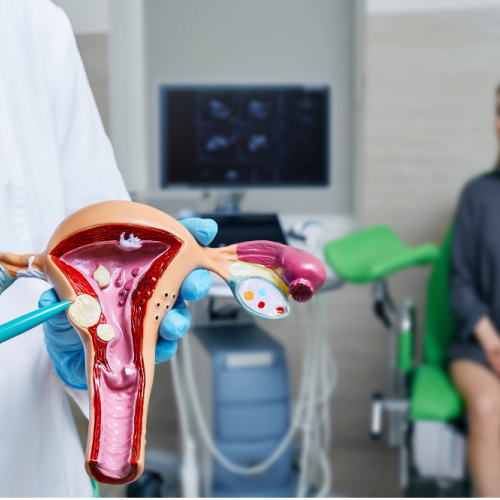Endometriosis and Pregnancy: Important Considerations

Endometriosis is a gynecological condition in which the lining of your uterus, the endometrium, grows outside of your womb. This means you can develop scarring or extra tissue on reproductive organs, making conceiving difficult.
Most women with endometriosis go on to have a completely normal pregnancy and birth. The fertility specialists at the California Center for Reproductive Health, with locations in Encino, Valencia, Alhambra, and West Hollywood, California, can help you overcome the fertility challenges associated with endometriosis.
Here’s what we want you to know about pregnancy and endometriosis.
What is endometriosis?
The endometrium is the tissue that lines the uterine. When endometrial cells grow in other parts of your body, they function just like the tissues within your uterus. They grow and shed every month in conjunction with your menstrual cycle.
Endometriosis is a major cause of pelvic pain, heavy and irregular periods, and pain during intercourse. Endometriosis can also cause infertility. About 30-50% of women with endometriosis experience infertility.
Why does endometriosis affect fertility?
Endometriosis doesn’t always interfere with conception; many women with the condition get pregnant naturally.
But, severe endometriosis can block the ovaries or fallopian tubes or cause them to not work properly. Women with mild endometriosis sometimes have trouble conceiving, too. That’s likely because the inflammation caused by the irregular endometrial cells causes a hormonal imbalance.
Will my pregnancy be affected?
If you get pregnant normally, endometriosis shouldn’t complicate your pregnancy. You may not even need extra monitoring as your pregnancy isn’t considered high risk.
However, in some women with endometriosis, high blood pressure or bleeding can develop later in pregnancy. If you’re under our care, we’ll monitor you for these potential complications.
Endometriosis also increases the risk, albeit slightly, that your baby will be born earlier than usual or will be smaller than usual.
How does pregnancy affect endometriosis?
While you’re pregnant, endometriosis and its associated symptoms usually improve. But, pregnancy doesn’t cure the condition. Endometriosis returns after you deliver and may complicate future attempts to conceive.
There is no cure for endometriosis, and the exact reason some women develop it isn’t fully understood.
What treatments are available if endometriosis is making it hard for me to get pregnant?
Endometriosis is only one aspect of fertility that our team at the California Center for Reproductive Health considers when helping you conceive. We’ll also consider your age, how long you’ve been trying to get pregnant, any male infertility factors, what infertility interventions you’ve undergone, the stage of your endometriosis, and your family history.
Minimally invasive surgery to remove endometrial tissue that’s interfering with conception is an option. This can help you get pregnant, but doesn’t mean endometriosis won’t come back after you’ve given birth.
Assisted reproductive technologies, like in vitro fertilization and embryo transfer, are also very successful in helping women with endometriosis who are struggling to get pregnant.
If you have endometriosis and it’s interfering with your ability to get pregnant, reach out to us at the California Center for Reproductive Health. Our advanced fertility treatments help thousands of couples have healthy babies. Call the nearest location or use this website to request a consultation.



